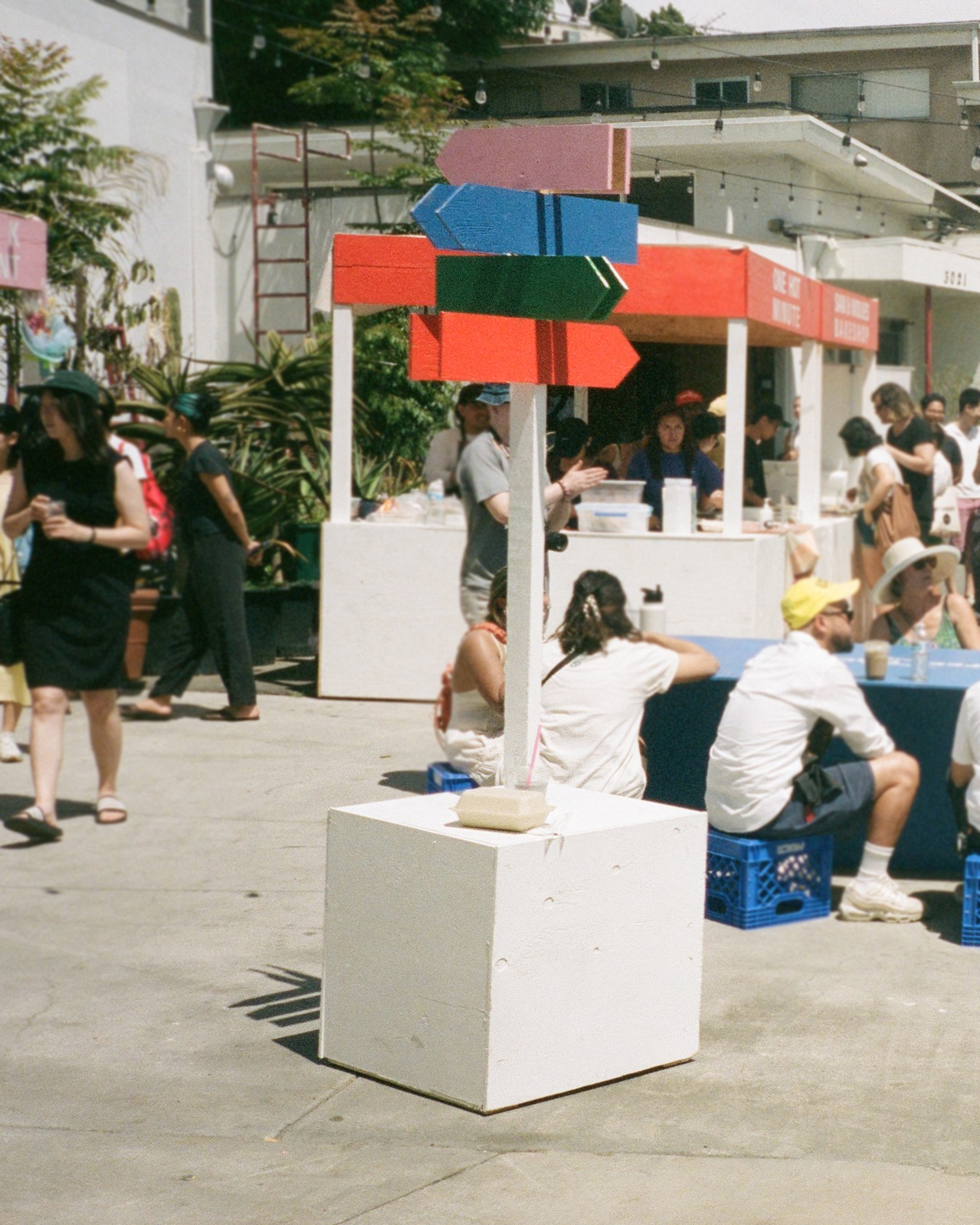Courtesy of Sari-Sari Studio
The creative-led salo-salo is promoting representation and community through food, fashion, and films
October was declared Filipino American History Month by the United States Congress in 2009, 17 years after it was first introduced by the late Drs. Fred and Dorothy Cordova. The move was a means to celebrate and commemorate Filipinos, the third largest ethnic group in the US, right after Latinx and African Americans.
There are many ways people across the county come together for FAHM, from honoring Filipino-American veterans and changemakers to visiting heritage sites. One creative collective called Sari-Sari Studios wants to bring new life and importance to the month-long occasion with an event that showcases the Filipino-American community.
Market and Cinema by Sari-Sari and Brain Dead Studios
Sari-Sari was founded by Marielle Sales and Gabrielle Mozo in 2018 while they were working in the creative industry of New York. The pair grew up in New Jersey and only really discovered more about their Filipino culture and traditions in their 20s. They were later joined by Canadian creative Mal Tayag in 2019.
The Sari-Sari Studios is founded on the ethos of producing content that highlights the Filipino diaspora. Their webspace houses an online general store that offers products made by Black, Indigenous, and People Of Color (BIPOC) creators.
On October 22, they’re launching a FAHM Market and Cinema event in partnership with Brain Dead Studios at their space in Fairfax. Sales tells Vogue Philippines that Brain Dead has always been an inspiration to them, making them the perfect collaborators for the occasion.
“We always loved how they collaborated and highlighted diverse communities and subcultures across fashion, art, food, film, music, and sports,” she explains, “Their experimental creative approach really resonated with us, and [we] thought there could be an opportunity to bring our communities together and uplift Filipino talent.”
The market is open to the public and will be featuring Filipino-American-owned businesses like Maaari, Jewel Sales Art, Thank You Saint, and Lasita. They also tapped Manila-born creatives Martin Diegor and Jemimah Barba to co-curate the event’s cinema programming.
Two films will be screened at Brain Dead’s theatre, which will give audiences access to iconic Philippine cinema—On The Job by Erik Matti and Maynila sa Kuko ng Liwanag by Lino Brocka.
Diegor explains why he chose the first film, “Erik Matti’s On The Job was an unlikely but obvious choice. I remember seeing it for the first time felt like riding a rollercoaster. It felt more compelling and timely to me to present horror that feels like it’s happening around the corner. And as with other great horror films, it’s ‘inspired by true events.”
Barba on the other hand, discusses choosing Brocka’s film, saying, “The film touches on the reality of Filipino folks in the 70s seeking a new life in the city while living under the Marcos dictatorship. Brocka, quite possibly Philippine’s most controversial director, used cinema as a form of resistance depicting the everyday lives of the working class held hostage by capitalism. ” Interested viewers can purchase tickets to both screenings here.
View this post on InstagramAdvertisement
Why Dedicated Spaces Matter
While America continues to reel from anti-Asian hate crimes, representation is becoming more and more important. Programs and events like the Market and Cinema that promote unity and community are vital for breaking that stigma.
Sales reflects how a lot of progress comes when influential members of the Filipino and BIPOC communities speak out in advocacy for their place in the community. The Sari-Sari founder recalls her feelings attending a launch party for the highly acclaimed Filipino-African American musical artist Chaz Bear, otherwise known as Toro Y Moi. The singer-songwriter debuted an album called Mahal as an ode to his Filipino heritage.
She describes how inspiring it was to see an established artist like Chaz use his platform to highlight Filipino culture, saying: “So many people came out to support the Filipino-led event. [It] feels like we are finally breaking through spaces most of our immigrant parents probably never imagined for us, and coming together as a global community.”
